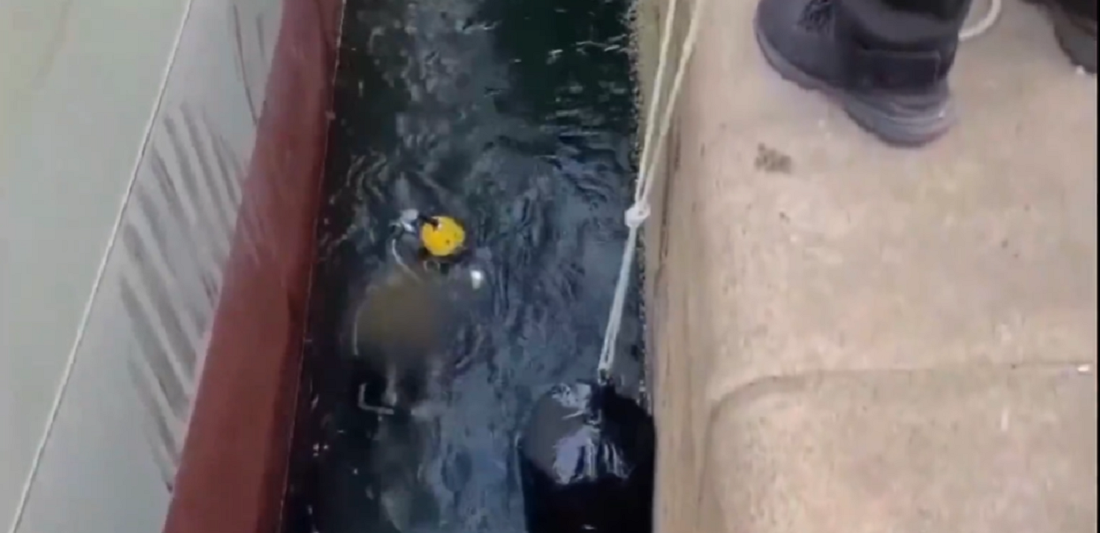
Half of all containers exported through Santos evade scanning
Apr, 11, 2024 Posted by Gabriel MalheirosWeek 202415
Half of the 3,858 containers shipped each day through the Port of Santos, the largest maritime terminal in Latin America, evade the scanning efforts of the Federal Revenue. Deployed in 2013, this equipment plays a pivotal role in uncovering drugs concealed by criminal factions amongst the cargo or within engine compartments. Until recently, this method of concealing cocaine stood as the preferred tactic among criminals.
The Federal Revenue rigorously scans all 3,983 containers that enter the terminal coming from abroad. Their objective is clear: to thwart the ingress of weapons, false content declarations, and counterfeit products.
In a noticeable decline, seizures of cocaine at the Santos terminal amounted to 8.2 tons last year. This achievement stems from the collaborative efforts of the Federal Revenue, Federal Police, Port Guard, and Navy. Since November, the enactment of the Guarantee of Law and Order (GLO) in ports and airports has intensified inspections at the terminal. Representatives from these agencies attribute the downturn in seizures to the synergistic nature of their operations.
“The revenue assumes responsibility for cargo oversight. We endeavor, not independently, to continually enhance our measures to combat trafficking. However, crime yields profits, ensuring its persistence. Our primary concern is to prevent its proliferation, particularly in a manner that would render the Port of Santos economically unviable,” remarked Ivan da Silva Brasílico, head of the Surveillance and Repression Division of the Customs of Santos, recalling the concerns raised by exporters in 2021 regarding the imminent loss of contracts due to contaminated cargo.
New pathways
In February, a new internal directive from Customs mandated that all containers destined for Australia, Singapore, Indonesia, Taiwan, and Hong Kong must undergo scanning. Previously, only shipments to European and African nations underwent such scrutiny.
This decision followed the discovery of contaminated shipments from Brazil in these countries. Additionally, containers bound for these destinations were intercepted with cocaine at the Port of Santos. While initially experimental, this new measure is slated to conclude at the end of April, with the possibility of extension.
This illicit trade proves to be immensely profitable. Investigations by the Public Prosecutor’s Office of São Paulo reveal that a kilogram of pure cocaine, intended for export, fetches up to $1,800 in Colombia and Peru, yet commands prices of $37,000 in Europe and $150,000 in Asia. In Australia, its value can soar to $300,000, as reported by O Globo.
Brasílico emphasizes that the exchange of intelligence between nations is paramount for uncovering these new routes exploited by organized crime.
On the 20th of last month, aided by sniffer dogs, the Federal Revenue intercepted 46 kilograms of cocaine concealed within the structure of a refrigerated container transporting drums of concentrated orange juice. The contraband’s destination was the Port of Sydney, Australia. This inspection followed routine monitoring procedures, risk analysis, and the utilization of scanner images.
Such destinations have become prime targets, prompting Brazil to dispatch divers linked to organized crime to Oceania. Typically, divers involved in trafficking schemes travel to foreign shores, submerging beneath the hulls of contaminated vessels to pinpoint the concealed drugs. In a tragic incident in May 2022, a Brazilian suspected of participating in such an operation in Australia, aimed at retrieving cocaine from an Argentine-flagged ship, drowned.
“Previously, organized crime recruited professional divers for such tasks. Over time, it became more empirical. They acquired knowledge and disseminated it,” remarks Daniel Coraça, chief of the Santos Branch of the Federal Police.
Source: O Globo
Click here to read the original article: https://oglobo.globo.com/brasil/noticia/2024/04/10/metade-dos-conteineres-exportados-do-porto-de-santos-nao-passa-por-escaner.ghtml
-
Ports and Terminals
Mar, 09, 2023
0
FastFrete wins auction for Port of Vila do Conde area for BRL 6 mln
-
Fish
Feb, 08, 2019
0
Korean flagged trawler arrested for illegal fishing in Argentina
-
Meat
Jul, 05, 2022
0
Brazil exports more than 800K tons of chicken meat to the Arab world
-
Other Logistics
May, 05, 2023
0
SAAM closes deal to acquire tugs from Starnav for its Brazil operations



